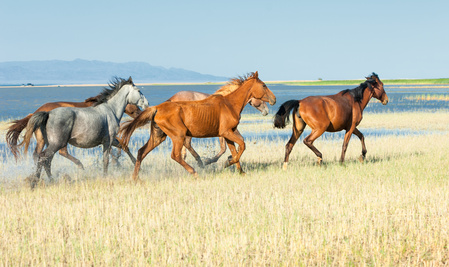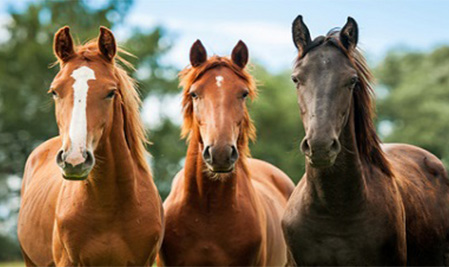Equine Ethics and Care Certificate Level 3
This Equine Course explores the meaning of ethics and the equine’s natural lifestyle and basic instincts. The course evaluates the ethics of keeping horses for our purposes.
Unit 1
Natural Lifestyle and Instincts of Horses
Unit 1 of this horse care course explores the ethics of keeping equines for our purposes. The concept of ethics in the scope of this unit are discussed, followed by a brief overview of the equine’s natural lifestyle and basic instincts.
Unit 2
Methods of providing Enhanced Equine Care
In this unit the general care of the horse is considered with regards to the wellbeing of the horse from A welfare and ethical perspective. The first part of this unit looks at general care issues of the horse. The second part looks more closely at the care of horses kept for different purposes, with particular consideration of competition and working horses.

Although few truly wild horses remain in the world today, there are pockets of them in various different countries. However, there are many areas around the world where feral horses (horses that were once domesticated, then left to their own devices and left to breed amongst themselves with little or no human intervention) can be found.
It is through observing wild and feral horses that we have gained an understanding of how horses live in their natural environment (although it should be noted that not all feral horses are living in natural environments). By observing how they interact with one another and with their surroundings, we have come to understand their behaviour patterns and how their general health and wellbeing is affected by their environment. All horses, no matter what size or type, are likely to behave in a predictable manner. This is because they all have what is called ‘instinctive behaviour’.
It is difficult to determine exactly which behaviours are ‘hard-wired’ into a horse at birth and which are learned (the debate of nature vs. nurture). However, it is clear that there are some behaviours that are hard-wired into a horse, for example a foal’s natural impulse to get to its feet and suckle. Most people feel that it is ethically acceptable to keep horses and also to work them (hence why there are so many domesticated horses in the world today), but there are many other questions to be asked about keeping and working horses.
Each individual horse owner will need to ask these questions of themselves and decide upon their own ethical principles which they wish to abide by. This equine course explores the subject of equine ethics and basic instincts.
*You will have access to the course for 12 months only. You can purchase course extensions.
We offer a selection of accredited and employer recognised courses specifically designed for careers working with animals.
If you have any questions about our courses, please contact us.
We’ve assisted many people to achieve their goal to work with animals. Read more about our 5-star reviews and student success stories.
Gain relevant training to achieve your goal to work with animals.


